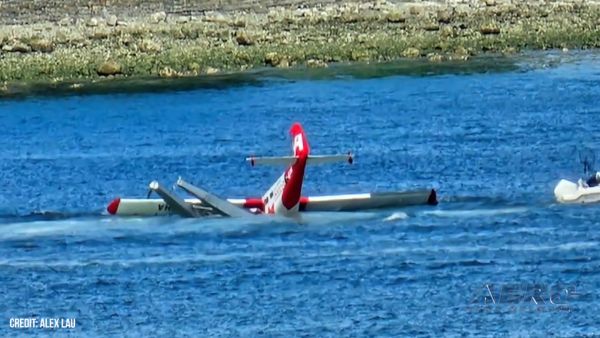Sun, Dec 07, 2008
Advertisement
More News
 ANN's Daily Aero-Term (06.11.24): Abeam
ANN's Daily Aero-Term (06.11.24): Abeam
Abeam An aircraft is “abeam” a fix, point, or object when that fix, point, or object is approximately 90 degrees to the right or left of the aircraft track. Abeam indic>[...]
 ANN's Daily Aero-Linx (06.11.24)
ANN's Daily Aero-Linx (06.11.24)
Aero Linx: The Air Charter Safety Alliance The group, called the Air Charter Safety Alliance, will raise awareness of illegal charter flights among potential customers, charter bro>[...]
 Aero-News: Quote of the Day (06.11.24)
Aero-News: Quote of the Day (06.11.24)
“For months, ALPA has been sounding the alarm on the ongoing efforts by some aircraft manufacturers to remove pilots from the flight deck and replace them with automation. To>[...]
 Airborne Affordable Flyers 06.06.24: 200th ALTO, Rotax SB, Risen 916iSV
Airborne Affordable Flyers 06.06.24: 200th ALTO, Rotax SB, Risen 916iSV
Also: uAvionix AV-Link, Does Simming Make Better Pilots?, World Games, AMA National Fun Fly Czech sportplane manufacturer Direct Fly has finished delivering its 200th ALTO NG, the >[...]
 Aero-News: Quote of the Day (06.12.24)
Aero-News: Quote of the Day (06.12.24)
“The legislation now includes a task force with industry representation ensuring that we have a seat at the table and our voice will be heard as conversations about the futur>[...]
blog comments powered by Disqus




